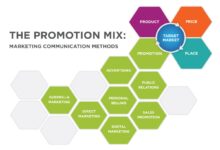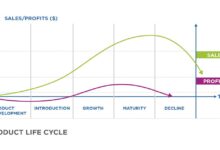Sales Jobs: 7 Powerful Career Paths That Skyrocket Your Income
Thinking about a career that rewards hustle, resilience, and results? Sales jobs aren’t just about making calls—they’re gateways to high earnings, rapid growth, and real influence. Let’s dive into the world where every deal closes a door to bigger opportunities.
Sales Jobs: The Backbone of Business Growth

Sales jobs are more than just transactional roles—they are the engine that drives revenue, fuels innovation, and connects products with people. In every industry, from tech startups to healthcare giants, sales professionals are the frontline warriors who turn ideas into income. According to the U.S. Bureau of Labor Statistics, over 15 million people in the United States alone work in sales-related roles, showcasing the massive scale and importance of this career path.
Why Sales Jobs Are Essential to Every Industry
Without sales, even the most revolutionary product would remain unknown. Sales jobs ensure that value is communicated, relationships are built, and revenue flows. Whether it’s a B2B software solution or a consumer electronics gadget, someone has to explain its benefits, overcome objections, and close the deal. This makes sales professionals indispensable across sectors like technology, pharmaceuticals, real estate, and finance.
- Sales drive customer acquisition and retention.
- They provide critical market feedback to product teams.
- Salespeople often act as brand ambassadors.
Companies like Salesforce and HubSpot have built empires not just on great products, but on powerful sales engines that scale globally. As Salesforce reports, 74% of high-growth companies prioritize sales talent development as a core strategy.
The Evolution of Sales Roles Over Time
Gone are the days when sales meant cold calls and pushy pitches. Modern sales jobs are consultative, data-driven, and customer-centric. The shift from transactional selling to relationship-based selling began in the 1990s but accelerated with digital transformation. Today, sales professionals use CRM tools, AI-powered insights, and social selling techniques to engage prospects meaningfully.
For example, LinkedIn has become a primary platform for B2B salespeople to build credibility and connect with decision-makers. As noted by LinkedIn’s 2023 Sales Trends Report, 82% of buyers expect personalized engagement before even speaking to a sales rep. This evolution means today’s sales jobs require emotional intelligence, strategic thinking, and tech fluency.
“Sales is not about pushing a product. It’s about solving a problem.” — Mary Groove, VP of Global Sales, Adobe
Top 7 High-Income Sales Jobs in 2024
The landscape of sales jobs has diversified dramatically. While some roles focus on volume, others emphasize strategic partnerships and long-term value creation. Here are seven of the most lucrative and in-demand sales jobs shaping the market in 2024.
1. Enterprise Account Executive
Enterprise Account Executives (AEs) handle large-scale clients, often Fortune 500 companies, and negotiate multi-million-dollar contracts. These sales jobs require deep industry knowledge, advanced negotiation skills, and the ability to navigate complex organizational structures.
Compensation for enterprise AEs is among the highest in the sales world. According to Glassdoor, the average base salary is $95,000, with on-target earnings (OTE) often exceeding $200,000 annually when commissions are factored in. Top performers at companies like Oracle or Microsoft can earn over $300,000 per year.
- Focus on long sales cycles (6–18 months).
- Work closely with legal, finance, and technical teams.
- Must understand ROI, TCO, and business impact.
Success in this role hinges on patience, persistence, and the ability to build trust at the C-suite level. As one executive at AWS put it, “Selling to enterprises isn’t about features—it’s about transformation.”
2. SaaS Sales Representative
Software-as-a-Service (SaaS) sales jobs have exploded with the rise of cloud computing. These roles involve selling subscription-based software solutions, ranging from CRM platforms to AI-powered analytics tools.
What sets SaaS sales apart is the recurring revenue model. Unlike one-time sales, SaaS reps earn commissions not just on initial deals but also on renewals and upsells. This creates long-term earning potential. Platforms like ZoomInfo and Gong have built entire sales methodologies around this model.
- High demand due to digital transformation.
- Requires understanding of product onboarding and user adoption.
- Strong emphasis on customer success collaboration.
A 2023 report by Forrester Research found that SaaS companies with dedicated sales teams grow 3.2x faster than those relying solely on self-service models. This underscores the critical role of human touch in tech sales.
3. Medical Device Sales Representative
Medical device sales jobs combine scientific knowledge with sales acumen. These professionals sell equipment like pacemakers, imaging machines, and surgical robots to hospitals and clinics.
Unlike general sales roles, medical device reps must understand anatomy, regulatory standards (like FDA approval), and clinical workflows. Many employers require a bachelor’s degree in life sciences or healthcare, and some even prefer candidates with clinical experience.
- Average OTE: $140,000–$180,000.
- Extensive training periods (3–6 months).
- Must build trust with surgeons and hospital procurement teams.
As the global medical device market is projected to reach $793 billion by 2027 (Grand View Research), demand for skilled reps continues to climb. This niche remains one of the most stable and high-paying sales jobs in healthcare.
Skills That Make You Stand Out in Sales Jobs
While personality plays a role, success in sales jobs is largely determined by a specific set of learnable skills. The best sales professionals aren’t just charismatic—they’re strategic, disciplined, and customer-obsessed.
Communication and Active Listening
Many assume sales is about talking, but the most effective reps spend more time listening. Active listening allows you to uncover pain points, understand motivations, and tailor your pitch accordingly.
According to a study by Harvard Business Review, top-performing salespeople ask twice as many open-ended questions as their peers. They also paraphrase client responses to confirm understanding, which builds trust and rapport.
- Use phrases like “What’s your biggest challenge with X?”
- Avoid interrupting; let the client finish their thoughts.
- Take notes during calls to show engagement.
“The most powerful tool in sales isn’t a pitch deck—it’s silence. Let the customer fill it.” — Jill Konrath, Author of *SNAP Selling*
Resilience and Handling Rejection
Rejection is inevitable in sales jobs. On average, it takes 8 follow-ups to reach a prospect, and only 2% of sales happen on the first contact (Source: Sales.org). Resilience—the ability to bounce back after a “no”—is what separates average performers from elite ones.
Top sales professionals reframe rejection as feedback. Instead of taking a “no” personally, they analyze what went wrong: Was the timing off? Did they misidentify the decision-maker? This growth mindset turns setbacks into learning opportunities.
- Keep a “lessons learned” journal after lost deals.
- Practice mindfulness or meditation to manage stress.
- Surround yourself with positive, high-energy teammates.
Tech Savviness and CRM Mastery
In today’s digital age, sales jobs require comfort with technology. Customer Relationship Management (CRM) systems like Salesforce, HubSpot, and Zoho are central to tracking leads, managing pipelines, and forecasting revenue.
A rep who masters CRM tools can automate follow-ups, segment audiences, and generate data-driven insights. For example, using Salesforce Einstein Analytics, a salesperson can predict which leads are most likely to convert based on historical behavior.
- Learn keyboard shortcuts to save time.
- Customize dashboards for real-time performance tracking.
- Integrate CRM with email and calendar apps for seamless workflow.
As AI becomes more embedded in sales tools, tech-savvy reps will have a significant edge. Those who resist technology risk being left behind.
How to Break Into Sales Jobs with No Experience
One of the most appealing aspects of sales jobs is accessibility. Unlike fields requiring advanced degrees or certifications, many entry-level sales roles welcome candidates from diverse backgrounds.
Start with Entry-Level Roles
Common starting points include Sales Development Representative (SDR), Business Development Representative (BDR), or Inside Sales Associate. These roles focus on lead generation, qualifying prospects, and setting appointments for senior reps.
While the pay may start modest (average base: $40,000–$55,000), these positions offer rapid learning and promotion paths. Many SDRs move into Account Executive roles within 12–18 months, doubling their income.
- Look for companies with formal training programs.
- Target industries you’re passionate about (e.g., tech, health, finance).
- Apply to startups for faster growth opportunities.
As RepVue’s 2023 BDR Report shows, 68% of SDRs who stay for two years get promoted to AE roles. This makes entry-level sales jobs one of the fastest tracks to career advancement.
Leverage Free Training and Certifications
You don’t need a degree to succeed in sales, but certifications can boost your credibility. Platforms like LinkedIn Learning, Coursera, and SalesHacker offer free or low-cost courses on sales fundamentals.
Popular certifications include:
- Certified Sales Professional (CSP) – Offered by the Sales Management Association.
- Inbound Sales Certification – HubSpot Academy (free).
- Salesforce Trailhead – Hands-on CRM training.
Completing these programs shows initiative and gives you a competitive edge during interviews. Employers value candidates who invest in their own development.
Network Strategically and Use Social Selling
Many sales jobs are filled through referrals. Networking—especially on LinkedIn—can open doors that cold applications can’t. Engage with content, comment on posts, and send personalized connection requests to hiring managers.
Practice social selling by sharing insights about industry trends, posting about sales techniques, and building a personal brand. According to LinkedIn’s 2023 data, reps who use social selling are 51% more likely to meet their quotas.
- Post weekly updates about your learning journey.
- Join LinkedIn groups related to sales careers.
- Attend virtual webinars and connect with speakers.
“Your network is your net worth in sales.” — Keith Ferrazzi, Author of *Never Eat Alone*
The Future of Sales Jobs: Trends to Watch
The world of sales jobs is evolving rapidly due to technological advancements, changing buyer behavior, and global economic shifts. Staying ahead means understanding these trends before they become mainstream.
Rise of AI and Automation in Sales
Artificial Intelligence is transforming sales jobs by automating repetitive tasks like data entry, email follow-ups, and lead scoring. Tools like Outreach.io and SalesLoft use AI to optimize outreach timing and personalize messaging at scale.
However, AI isn’t replacing salespeople—it’s augmenting them. The human element remains crucial for building trust, handling complex negotiations, and delivering empathy. The future belongs to reps who can leverage AI to work smarter, not harder.
- AI-powered chatbots qualify leads 24/7.
- Predictive analytics forecast customer churn.
- Speech analytics tools review call recordings for coaching.
According to a McKinsey report, companies using AI in sales see a 30–50% increase in lead conversion rates. Early adopters gain a significant competitive advantage.
Remote and Hybrid Sales Models
The pandemic accelerated the shift to remote sales jobs. Today, many companies operate fully remote or hybrid models, allowing reps to work from anywhere.
This flexibility expands talent pools and reduces overhead, but it also introduces challenges. Building rapport over Zoom, managing time zones, and staying motivated without an office environment require discipline and strong communication skills.
- Invest in a professional home office setup.
- Use video consistently to build trust.
- Schedule regular virtual team check-ins.
Remote sales jobs are here to stay. A 2023 Gartner survey found that 65% of sales organizations now support remote work, up from 22% in 2019.
Increased Focus on Customer Success
Sales doesn’t end at the close. Modern sales jobs increasingly overlap with customer success roles, especially in subscription-based models. Retention, upselling, and advocacy are now key performance indicators.
Reps are expected to collaborate with success teams to ensure smooth onboarding and long-term satisfaction. This shift reflects a move from transactional to relational selling.
- Learn the basics of customer success platforms like Gainsight.
- Track renewal dates and expansion opportunities.
- Ask for testimonials and referrals early.
As CSMA’s 2024 report highlights, companies with integrated sales and success teams achieve 2.5x higher customer lifetime value.
Industries with the Highest Demand for Sales Jobs
While sales exists in every sector, some industries are experiencing explosive growth in hiring. These sectors offer stability, high commissions, and long-term career paths.
Technology and SaaS
The tech industry remains the hottest market for sales jobs. From cybersecurity to AI platforms, companies are racing to capture market share. SaaS sales roles, in particular, offer uncapped commissions and global opportunities.
- High OTE potential ($150K+).
- Fast-paced, innovative environments.
- Strong emphasis on continuous learning.
According to Crunchbase, SaaS startups raised over $40 billion in 2023, fueling massive sales team expansion.
Healthcare and Biotech
Aging populations and medical innovation are driving demand for sales professionals in healthcare. Roles include pharmaceutical sales, medical devices, and health IT solutions.
- Stable industry with recession-resistant demand.
- Requires compliance knowledge (e.g., HIPAA).
- Strong ethical standards and training.
The U.S. Bureau of Labor Statistics projects a 5% growth in healthcare sales jobs through 2032—faster than average.
Renewable Energy and Green Tech
As the world shifts toward sustainability, sales jobs in solar, wind, and energy storage are booming. These roles involve selling to utilities, businesses, and governments.
- Aligned with global ESG goals.
- Long sales cycles but high contract values.
- Opportunities for public speaking and policy engagement.
According to the International Renewable Energy Agency (IRENA), the sector could create over 40 million jobs by 2050, many in sales and business development.
Common Myths About Sales Jobs Debunked
Despite their importance, sales jobs are often misunderstood. Let’s clear up some common misconceptions that deter talented people from entering the field.
Myth 1: Sales Is Only for Extroverts
Many believe you must be loud and outgoing to succeed in sales jobs. But introverts can excel too. Their strengths—deep listening, thoughtful preparation, and empathy—are highly effective in consultative selling.
As author Daniel Pink writes in *To Sell Is Human*, “Selling is serving.” Introverts often build stronger, more authentic relationships because they focus on the customer, not themselves.
Myth 2: Sales Jobs Lack Stability
Some see sales as a “feast or famine” career. While income can vary, top performers enjoy remarkable stability. Long-term clients, recurring revenue models, and performance-based bonuses create predictable earnings over time.
Additionally, sales skills are transferable across industries, making it easier to pivot if needed.
Myth 3: It’s All About Commission
While commissions are a major draw, modern sales jobs offer comprehensive packages: health benefits, retirement plans, stock options, and professional development budgets. Companies like Atlassian and Shopify offer equity to even entry-level reps.
Moreover, many roles now include base salaries that cover living expenses, reducing financial pressure.
“Sales isn’t a job—it’s a career with infinite upside.” — Grant Cardone
What are the most in-demand sales jobs in 2024?
The most in-demand sales jobs include Enterprise Account Executives, SaaS Sales Representatives, Medical Device Sales Reps, Renewable Energy Sales Managers, and Cloud Security Sales Specialists. These roles combine high earning potential with strong industry growth.
Do sales jobs require a college degree?
Not always. While some specialized roles (like medical sales) may require a degree, many companies prioritize skills, attitude, and performance over formal education. Certifications and experience often matter more.
How can I start a career in sales with no experience?
Begin with entry-level roles like SDR or BDR, complete free certifications (e.g., HubSpot Inbound Sales), and build a LinkedIn presence. Networking and persistence are key to landing your first role.
Are remote sales jobs here to stay?
Yes. Over 60% of sales organizations now support remote or hybrid work. Tools like Zoom, Slack, and CRM platforms make it possible to perform effectively from anywhere.
What’s the average salary for sales jobs?
Salaries vary widely. Entry-level roles average $45,000–$60,000, while experienced AEs in tech or healthcare can earn $150,000–$300,000+ with commissions. OTE (On-Target Earnings) is the best metric for total compensation.
Sales jobs are more than just a career—they’re a launchpad for financial freedom, personal growth, and professional impact. From breaking into the field with no experience to mastering AI-driven tools, the path is open to anyone willing to learn, adapt, and persist. Whether you’re drawn to tech, healthcare, or green energy, there’s a high-income sales role waiting for you. The future of sales isn’t just bright—it’s revolutionary.
Further Reading:



